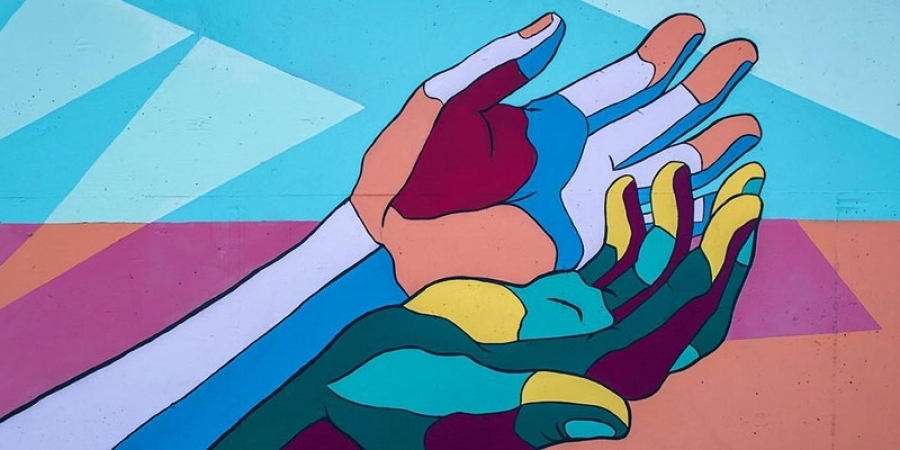2 Jul 2022: Questioning 'Diversity' in Psychoanalysis

This is the third in a series of seminars on Decolonising Psychoanalysis, organised by the Race and Culture Committee of the Guild of Psychotherapists. The series is intended to open up conversations about psychoanalysis by initiating Transatlantic Dialogues between academic research and clinical practice. In this instance, both speakers are clinicians, researchers, teachers and activists, and their talks will address the seemingly intractable problem of 'diversity' in psychoanalysis.
Lara Sheehi and Foluke Taylor
Saturday 2nd July 2022, 3:00pm - 5:00pm BST
Online seminar £12 - £24
Lara Sheehi Representation, not liberation: "Diversity" and stabilizing coloniality
Foluke Taylor Following Broken Water: Decolonising Psychoanalytics and Therapeutic Emergent-cy
-
! How might we explore layers of diversity, within and without the psychoanalytic encounter?
-
! How can we rethink notions of diversity in an 'anti-colonial' way?
-
! Must clinicians learn a language of diversity to ethically address their patients?
And how can these ideas contribute to the task of 'decolonising psychoanalysis' and lessening the psychic price of everyday racism and discrimination?
For further event details, speakers' biographies and booking options please see the event listing.
Ticket-holders will have access to a recording of the seminar for a month after the event.
 Lara Sheehi PsyD (she/hers), is an Assistant Professor of Clinical Psychology at the George Washington University's Professional Psychology Program. She teaches decolonial, liberatory and anti-oppressive theories and approaches to clinical treatment, case conceptualization, and community consultation. She is the president-elect of the Society for Psychoanalysis and Psychoanalytic Psychology (APA Division 39), and the chair of the Teachers' Academy of the American Psychoanalytic Association. She is co-editor of Studies in Gender and Sexuality and co-editor of CounterSpace in Psychoanalysis, Culture, and Society. Lara is on the advisory board to the USA–Palestine Mental Health Network and Psychoanalysis for Pride. She is co-author with Stephen Sheehi of Psychoanalysis Under Occupation: Practicing Resistance in Palestine (Routledge, 2022).
Lara Sheehi PsyD (she/hers), is an Assistant Professor of Clinical Psychology at the George Washington University's Professional Psychology Program. She teaches decolonial, liberatory and anti-oppressive theories and approaches to clinical treatment, case conceptualization, and community consultation. She is the president-elect of the Society for Psychoanalysis and Psychoanalytic Psychology (APA Division 39), and the chair of the Teachers' Academy of the American Psychoanalytic Association. She is co-editor of Studies in Gender and Sexuality and co-editor of CounterSpace in Psychoanalysis, Culture, and Society. Lara is on the advisory board to the USA–Palestine Mental Health Network and Psychoanalysis for Pride. She is co-author with Stephen Sheehi of Psychoanalysis Under Occupation: Practicing Resistance in Palestine (Routledge, 2022).

Foluke Taylor is a *therapist and writer currently teaching at the Metanoia Institute in London. She is interested in therapeutic practices that hold open space for thinking (from and into) the position of Blackness, which in the development of psychoanalysis and psychotherapy, has most frequently occupied the position of the unthought. Following the work of Christina Sharpe, the asterisk before the therapist functions as both wildcard and placeholder. As an (asterisked) *therapist, she practices without prefix to signal both excess, and a black feminist mode of attention to the emergent and yet-to-be. She accredited with BACP, is a member of the Editorial Board at Lapidus International Research and Innovation Community Journal (LIRIC), and a trustee at Mslexia. Published work includes How the Hiding Seek (2018); As Much Space as We Can Imagine: Black Presence in Counselling and Psychotherapy (2019); Black Paranormal: A Playlist (in ‘What is Normal?’ Confer Books 2020); Reimagining the Space for a Therapeutic Curriculum – a Sketch, (co-authored with Robert Downes in Black Identities and White Therapies: Race Respect and Diversity. PCCS 2021) and Otherwise: Writing Unbearable Encounters Through the Register of Race (LIRIC 2021). Her forthcoming book Unruly Therapeutic: Black Feminist Writings and Practices in Living Room will be published by W.W. Norton in 2023.
Organised by the Race and Culture Committee of the Guild of Psychotherapists.
The Race and Culture Committee (RCC) was set up to provide a forum for Black, Asian and Minority Ethnic members of The Guild of Psychotherapists to discuss issues of common concern, address ‘racial’ and cultural questions from a psychoanalytic and analytical psychology perspective, and promote anti-racist practice and racial equity within psychotherapy and the wider community. It embodies the values and purposes of The Guild in establishing ‘a pluralistic professional body to foster independence of thought, a spirit of inquiry, and freedom to develop creatively for the benefit of the profession and the public seeking psychological help.'
